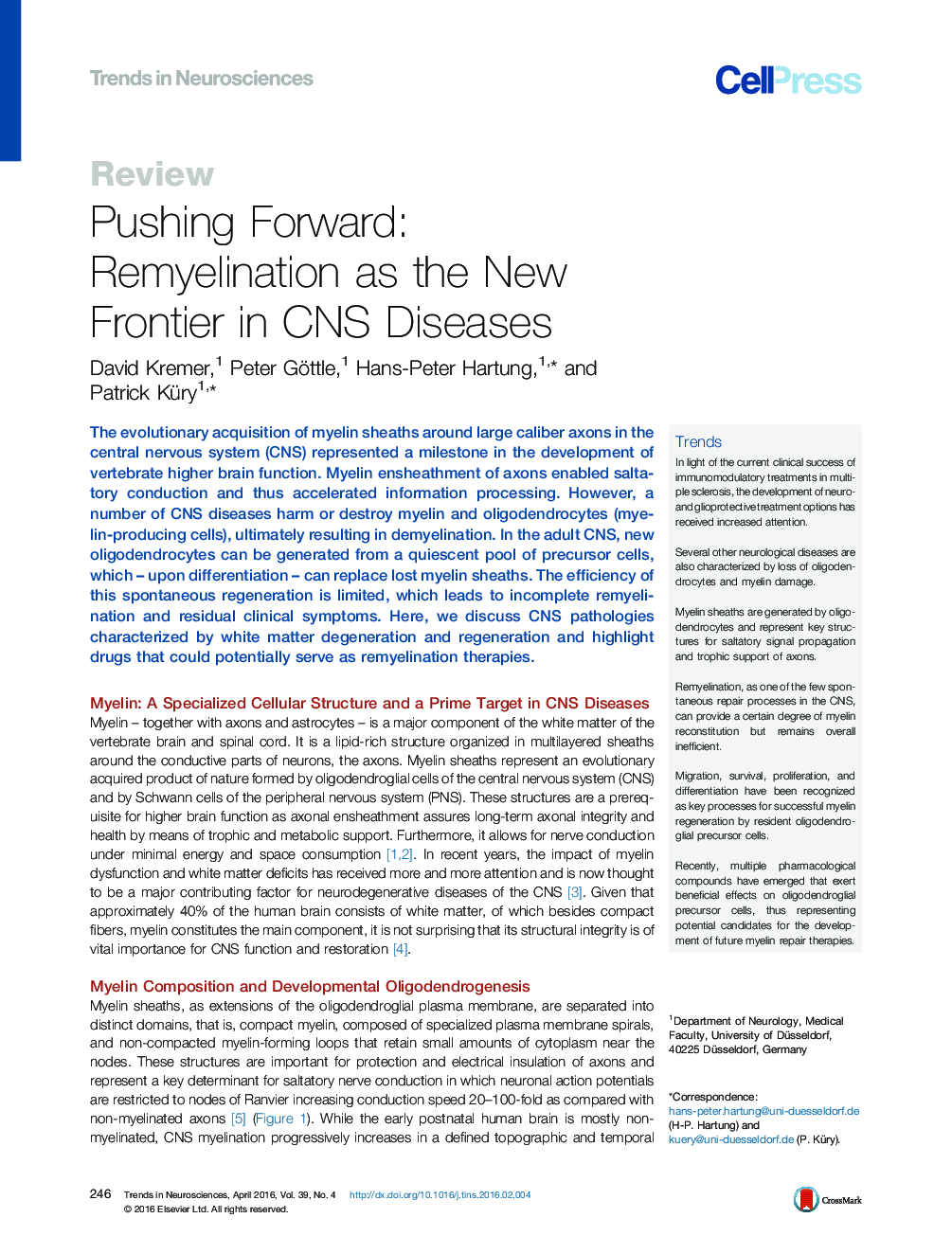| Article ID | Journal | Published Year | Pages | File Type |
|---|---|---|---|---|
| 4354151 | Trends in Neurosciences | 2016 | 18 Pages |
The evolutionary acquisition of myelin sheaths around large caliber axons in the central nervous system (CNS) represented a milestone in the development of vertebrate higher brain function. Myelin ensheathment of axons enabled saltatory conduction and thus accelerated information processing. However, a number of CNS diseases harm or destroy myelin and oligodendrocytes (myelin-producing cells), ultimately resulting in demyelination. In the adult CNS, new oligodendrocytes can be generated from a quiescent pool of precursor cells, which – upon differentiation – can replace lost myelin sheaths. The efficiency of this spontaneous regeneration is limited, which leads to incomplete remyelination and residual clinical symptoms. Here, we discuss CNS pathologies characterized by white matter degeneration and regeneration and highlight drugs that could potentially serve as remyelination therapies.
TrendsIn light of the current clinical success of immunomodulatory treatments in multiple sclerosis, the development of neuro- and glioprotective treatment options has received increased attention.Several other neurological diseases are also characterized by loss of oligodendrocytes and myelin damage.Myelin sheaths are generated by oligodendrocytes and represent key structures for saltatory signal propagation and trophic support of axons.Remyelination, as one of the few spontaneous repair processes in the CNS, can provide a certain degree of myelin reconstitution but remains overall inefficient.Migration, survival, proliferation, and differentiation have been recognized as key processes for successful myelin regeneration by resident oligodendroglial precursor cells.Recently, multiple pharmacological compounds have emerged that exert beneficial effects on oligodendroglial precursor cells, thus representing potential candidates for the development of future myelin repair therapies.
